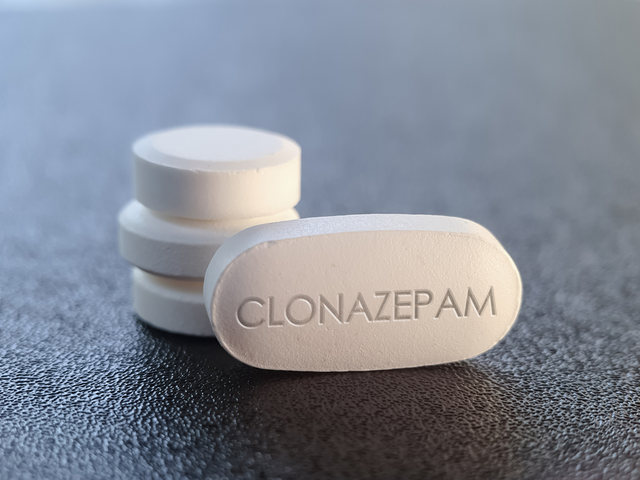Benzodiazepines are a class of synthetic drugs that combine sedative, hypnotic, relaxing, anticonvulsant and anxiolytic properties used in the treatment of different mental disorders. Brazil is the country that most consumes benzodiazepines in the world, which can be explained by the high rate of Brazilians who suffer from some type of neurological disorder, such as anxiety or depression: 86% of the population.
These figures were raised by the World Health Organization (WHO), which also points to Brazil as the country that has the most anxious people in the world. But is there an effective alternative to chronic benzodiazepine use that can rid patients of the addiction and side effects from these drugs? The answer lies in medical Cannabis. Keep on reading and understand this relationship!
Medical Cannabis and the chronic use of benzodiazepines
Anxiety disorders, depression, insomnia and panic attacks are some of the conditions commonly treated with the use of benzodiazepine drugs. However, in addition to causing unwanted side effects, the chronic use of these drugs can lead the patient to dependence on the drug, which makes it quite difficult to discontinue medication. Even the package insert for these medications indicates the use for a maximum of 3 to 6 weeks.
Among the common adverse effects of using (as well as the abstinence) these drugs are decreased appetite, muscle weakness, sleep disorders and irritability. Other more serious impacts of chronic benzodiazepine use include cognitive impairment in the medium and long term, risk of falls and accidents in the elderly and even risk of overdose due to the high potential for dependence on this substance.
It is worth remembering what happened in the so-called opioid crisis in the United States, which caused the death of 450 thousand people in the country between 1999 and 2018 due to an overdose of opioid drugs (painkillers of which production base is the same as that of opium and heroin), according to estimates from the Centers for Disease Prevention (CDC).

In this regard, medical Cannabis has become a great ally in fighting against the chronic use of benzodiazepines, not only because of its therapeutic efficacy in treating different neuropsychiatric disorders commonly treated with benzodiazepines, but also because it is able to fight the symptoms presented by those who try to quit these drugs.
This is what shows a study of the National Biotechnology Center of the United States published in 2019 in the scientific journal Cannabis and Cannabinoid Research. The research analyzed a group of 146 patients who used benzodiazepines before starting Cannabis therapy.
After an average course of prescription for cannabinoids for two months, 30.1% of patients discontinued the use of benzodiazepines. After two average prescription courses, 44.5% of patients stopped using benzodiazepines. In the final period of the experiment, after three prescription courses, this number rose to 45.2% of patients who abandoned using benzodiazepines.
The conclusion of this study shows a stable cessation rate that lasts an average of six months until patients can completely get rid of chronic benzodiazepine use. Other scientific evidence further reinforces that Cannabis-based products have fewer side effects and more effective results than benzodiazepines in controlling different neuropsychiatric disorders such as anxiety.
CBD and THC at the weaning of benzodiazepines
As benzodiazepines are drugs that have the potential to generate addiction, it is important that doctors design weaning strategies with their patients, by gradually reducing the doses until the treatment ends.
As we said, medical Cannabis – in addition to being a powerful therapeutic agent in fighting several diseases commonly treated with benzodiazepines – is also a great ally in the transition or weaning processes of psychotropic drugs.
Although the CBD is the most widely used phytocannabinoid in Cannabis therapy, THC has unique therapeutic potential to fight certain benzodiazepine withdrawal symptoms that hinder complete weaning.
Properties such as appetite stimulation, mood improvement and sleep induction are some of the THC attributes that bring more quality of life to patients who are on chronic benzodiazepine use and who are trying to abandon the medication.
In these cases, the dosing strategies are usually based on the balance between the two products: the benzodiazepine doses are gradually decreased while increasing the doses of the most suitable phytocannabinoid for that context.
Only by knowing in depth the profile of the prescribed cannabinoid derivatives and establishing a good doctor-patient relationship is it possible to find the optimal dosage for each of the treated cases.
Nós podemos ajudar você no acesso a esse conhecimento disruptivo em Sistema Endocanabinoide e Cannabis medicinal.Contact us e faça parte da maior comunidade global de estudos em Medicina Endocanabinoide!
References
Peixoto, LS et. al. Ansiedade: o uso da cannabis sativa como terapêutica alternativa frente aos benzodiazepínicos / Anxiety: the use of cannabis sativa as an alternative therapy in front of benzodiazepinics. Brazilian Journal of Development, Curitiba, v. 6, n. 7, jul. 2020.
Purcell C, Davis A, Moolman N, Taylor SM. Reduction of Benzodiazepine Use in Patients Prescribed Medical Cannabis. Cannabis Cannabinoid Res., 2019.
